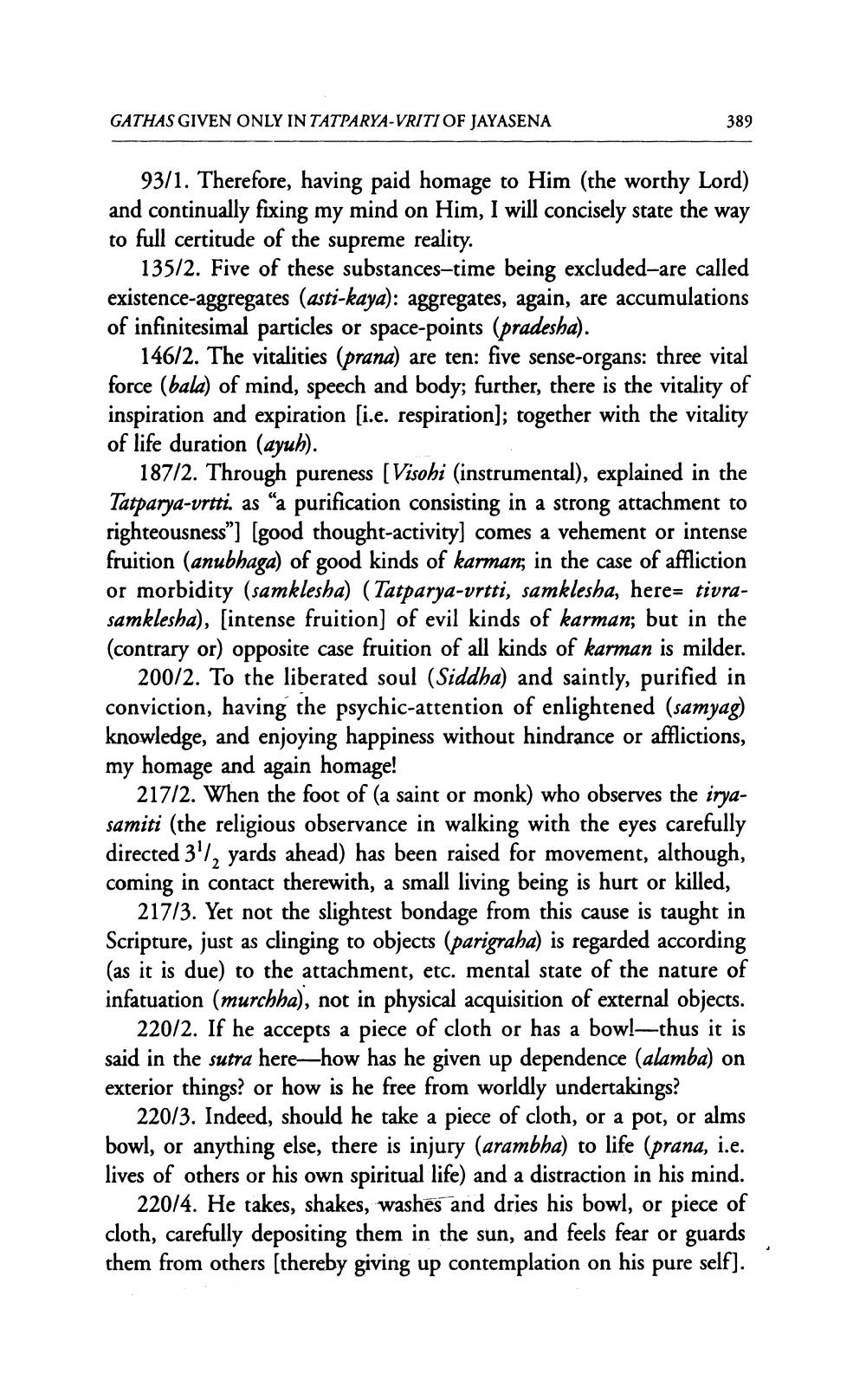________________
GATHAS GIVEN ONLY IN TATPARYA-VRITI OF JAYASENA
389
93/1. Therefore, having paid homage to Him (the worthy Lord) and continually fixing my mind on Him, I will concisely state the way to full certitude of the supreme reality.
135/2. Five of these substances-time being excluded-are called existence-aggregates (asti-kaya): aggregates, again, are accumulations of infinitesimal particles or space-points (pradesha).
146/2. The vitalities (prana) are ten: five sense-organs: three vital force (bala) of mind, speech and body; further, there is the vitality of inspiration and expiration [i.e. respiration); together with the vitality of life duration (ayuh).
187/2. Through pureness (Visohi (instrumental), explained in the Tatparya-vrtti. as "a purification consisting in a strong attachment to righteousness”) (good thought-activity) comes a vehement or intense fruition (anubhaga) of good kinds of karman, in the case of affliction or morbidity (samklesha) (Tatparya-vrtti, samklesha, here= tivrasamklesha), (intense fruition) of evil kinds of karman; but in the (contrary or opposite case fruition of all kinds of karman is milder.
200/2. To the liberated soul (Siddha) and saintly, purified in conviction, having the psychic-attention of enlightened (samyag) knowledge, and enjoying happiness without hindrance or afflictions, my homage and again homage!
217/2. When the foot of (a saint or monk) who observes the iryasamiti (the religious observance in walking with the eyes carefully directed 3'/, yards ahead) has been raised for movement, although, coming in contact therewith, a small living being is hurt or killed,
217/3. Yet not the slightest bondage from this cause is taught in Scripture, just as clinging to objects (parigraha) is regarded according (as it is due to the attachment, etc. mental state of the nature of infatuation (murchha), not in physical acquisition of external objects.
220/2. If he accepts a piece of cloth or has a bowl-thus it is said in the sutra here—how has he given up dependence (alamba) on exterior things? or how is he free from worldly undertakings?
220/3. Indeed, should he take a piece of cloth, or a pot, or alms bowl, or anything else, there is injury (arambha) to life (prana, i.e. lives of others or his own spiritual life) and a distraction in his mind.
220/4. He takes, shakes, washes and dries his bowl, or piece of cloth, carefully depositing them in the sun, and feels fear or guards them from others (thereby giving up contemplation on his pure self).




